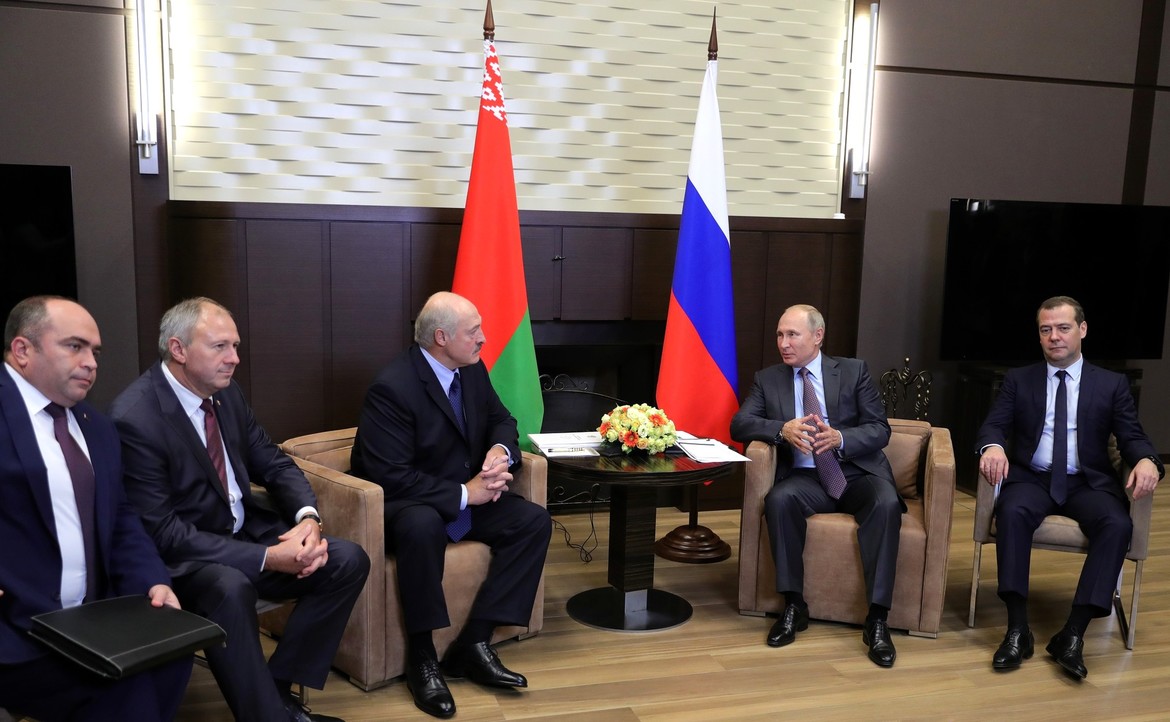Russo-Belarusian negotiations on terms of cooperation back to square one
 The situation has not changed
The situation has not changed

Further to Rumas and Medvedev’s agreement on the integration programme and taking the gas and oil talks off the Union State table, negotiations on terms of oil and gas cooperation fell back to square one, without gaining any new weighty arguments in the past nine months.
Unless Russia agrees to compensation to the Belarusian economy for the tax manoeuvre in the oil industry, the Belarusian government will be unable to draft the 2020 state budget, the year of the presidential elections. Despite some steps forward towards the integration, the tax manoeuvre issue has not been resolved. Similarly, the gas price has not been agreed upon.
In fact, Belarus and Russia are back to square one in these matters, right where the confrontation began some nine 9 months ago. In late November-early December 2018, Lukashenka, referring to the fact that gas and oil issues after 2020 would be resolved contrary to Belarus’ expectations, made several demarches against the Russian leadership, including public allegations against Putin at the EEU summit. In response, Russia came up with the so-called “Medvedev’s ultimatum”, making favourable terms of cooperation on gas and oil depend upon the “depth of integration”.
Over the past nine months, setting aside negotiations on oil and gas, the parties were trying to determine the comfortable “depth of integration”. Ultimately, oil and gas issues will have to be resolved based on the current balance of power and without considering the integration pace, since ultimatums had zero effect on such disposition.
Meanwhile, other factors have intervened. 1. The incident at the Druzhba oil pipeline. In addition to claiming compensation for losses due to the incident, Belarus now aims to amend the agreement with Transneft with “stringent conditions”. Transneft is now in conflict with Russian oil companies, the financial bloc in the Russian government, and European consumers. Reduced demand for Russian oil in the EU is likely. 2. Difficulties with launching Nord Stream 2. There is a sharp increase in the supply and consumption of LNG in the EU. Poland and the US have concluded a gas agreement.
All the mentioned above factors bolster Belarus’ negotiation position. However, the reorientation of Russian gas and oil exports to the Asia-Pacific region and, consequently, the reduced interest in the European market, on the contrary, have weakened it. In other words, over the past nine months, both, the positions of the parties and the balance of powers have virtually remained the same, meanwhile, there is no more time left to find a compromise.
Subscribe to our newsletter




Situation in Belarus
Constitutional referendum: main consequences


 Video
Video
How to count the political prisoners: are the new criteria needed?


 Video
Video
Paternalism In Decline, Belarusian Euroscepticism, And The Influence Of Russia


 Video
Video












